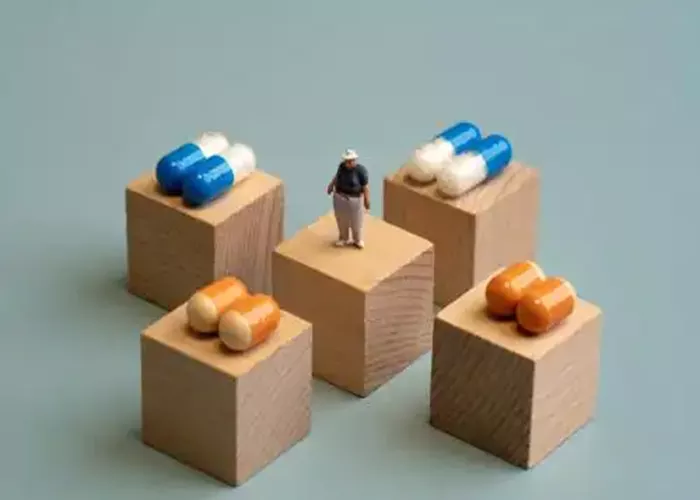In today’s society, where obesity rates are alarmingly high, and the pressure to maintain a slim figure is immense, many people resort to weight loss pills as a quick fix. However, the long-term consequences of taking weight loss pills can be severe and potentially life-threatening. I want to educate you on the risks associated with prolonged use of weight loss pills and provide you with healthier alternatives.
Understanding Weight Loss Pills
Weight loss pills are medications designed to help individuals lose weight. They work through various mechanisms, such as suppressing appetite, increasing metabolism, or blocking the absorption of fats. While some pills may be prescribed by doctors for specific conditions like severe obesity, many others are available over the counter or through online sources without a prescription.
Popular Weight Loss Pills and Their Mechanisms
Appetite Suppressants: These pills work by reducing your hunger, making you feel full faster and for longer periods. Common ingredients include caffeine, phenylpropanolamine (PPA), and synephrine.
Fat Blockers: These pills prevent the absorption of fats in your diet. Orlistat is a well-known example of a fat blocker that is available prescription-only in some countries.
Metabolism Boosters: These pills increase your body’s metabolic rate, helping you burn more calories throughout the day. Ingredients like ephedrine, green tea extract, and capsaicin are commonly used in metabolism boosters.
Carbohydrate Blockers: These pills prevent the absorption of carbohydrates, especially simple sugars, from your diet. Examples include white kidney bean extract.
Short-Term Effects of Weight Loss Pills
While weight loss pills may promise quick results, their short-term effects can be deceiving. Initially, you may experience a rapid weight loss due to water loss, decreased appetite, or increased bowel movements. However, these effects are often not sustainable, and the weight loss may plateau or even reverse once you stop taking the pills.
Long-Term Consequences of Taking Weight Loss Pills
The long-term consequences of taking weight loss pills can be severe and multifaceted. Here are some of the most significant risks:
Cardiovascular Problems: Many weight loss pills, especially those that increase metabolism, can raise blood pressure and heart rate. Prolonged use can lead to cardiovascular problems, including heart attacks and strokes.
Liver and Kidney Damage: Some weight loss pills contain ingredients that are toxic to the liver and kidneys. Long-term use can cause liver and kidney damage, leading to serious health issues and even organ failure.
Digestive Issues: Weight loss pills that alter bowel movements, such as fat blockers and laxatives, can cause digestive issues like constipation, diarrhea, and abdominal pain. Prolonged use can disrupt the normal functioning of the digestive system.
Electrolyte Imbalance: Many weight loss pills cause dehydration and electrolyte imbalance, especially those that increase urine output. This can lead to symptoms like muscle cramps, weakness, and even life-threatening conditions like hypokalemia (low potassium levels).
Psychological Effects: The pressure to lose weight and the disappointment that often accompanies weight regain can lead to psychological issues like anxiety, depression, and eating disorders. Long-term use of weight loss pills can exacerbate these problems.
Addiction and Withdrawal: Some weight loss pills contain addictive substances like amphetamines or opioids. Prolonged use can lead to addiction, and withdrawal symptoms can be severe and dangerous.
Interactions with Other Medications: Weight loss pills can interact with other medications you may be taking, leading to unwanted side effects or reduced effectiveness of both the weight loss pill and the other medication.
Rebound Weight Gain: Once you stop taking weight loss pills, you may experience rebound weight gain. This is because your body may have adapted to the pill’s effects, and without it, your metabolism and appetite may return to their previous levels or even worse.
Healthier Alternatives to Weight Loss Pills
Given the serious long-term consequences of taking weight loss pills, it’s essential to explore healthier alternatives. Here are some effective and sustainable weight loss strategies:
Balanced Diet: Eating a balanced diet that includes a variety of fruits, vegetables, lean proteins, and whole grains is crucial for weight loss. This ensures that you get all the necessary nutrients while controlling calorie intake.
Regular Exercise: Engaging in regular physical activity, such as walking, jogging, swimming, or strength training, can help you burn calories and build muscle mass. Exercise also has numerous health benefits beyond weight loss.
Behavioral Modification: Changing your eating habits and lifestyle can be an effective way to lose weight and keep it off. This includes practicing mindful eating, setting realistic goals, and finding healthy ways to cope with stress.
Seeking Professional Help: If you’re struggling with weight loss, seeking help from a healthcare provider or a registered dietitian can be beneficial. They can provide personalized advice and support tailored to your specific needs and goals.
Weight Loss Surgery: For individuals with severe obesity, weight loss surgery may be an option. Procedures like gastric bypass or sleeve gastrectomy can help you lose a significant amount of weight and improve your overall health.
Conclusion
Taking weight loss pills for a long time can have serious consequences on your health. While they may promise quick results, the risks far outweigh the benefits. As a weight loss expert, I strongly recommend exploring healthier alternatives like a balanced diet, regular exercise, behavioral modification, and seeking professional help. By adopting these strategies, you can achieve sustainable weight loss and improve your overall health and well-being.
In summary, weight loss pills should not be your go-to solution for weight management. They come with significant risks and are not a sustainable or healthy way to lose weight. Instead, focus on making healthy lifestyle changes that you can maintain long-term. Remember, slow and steady wins the race when it comes to weight loss. By taking it one step at a time and making gradual changes, you can achieve your weight loss goals and enjoy a healthier, happier life.
Related topic:


